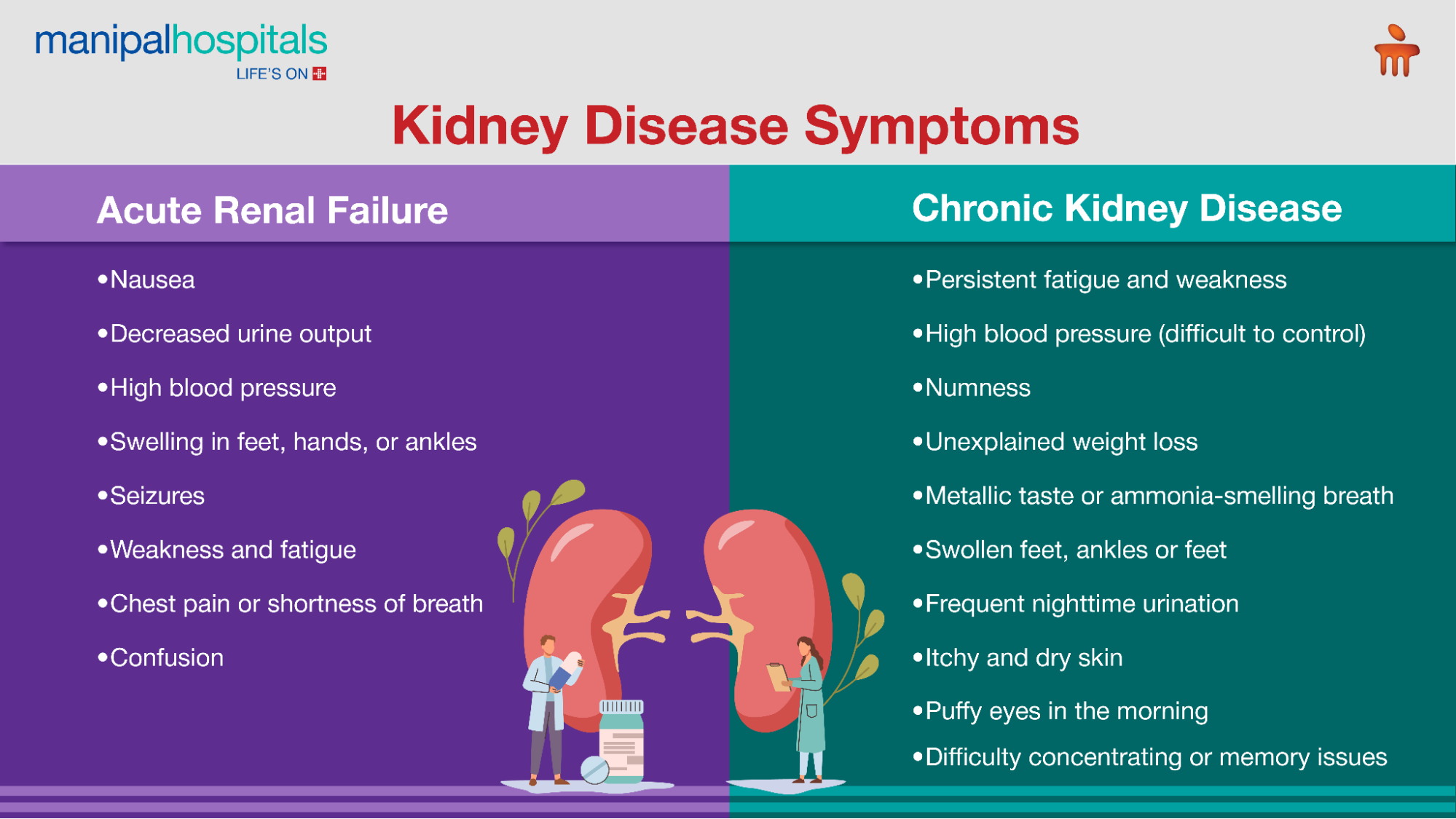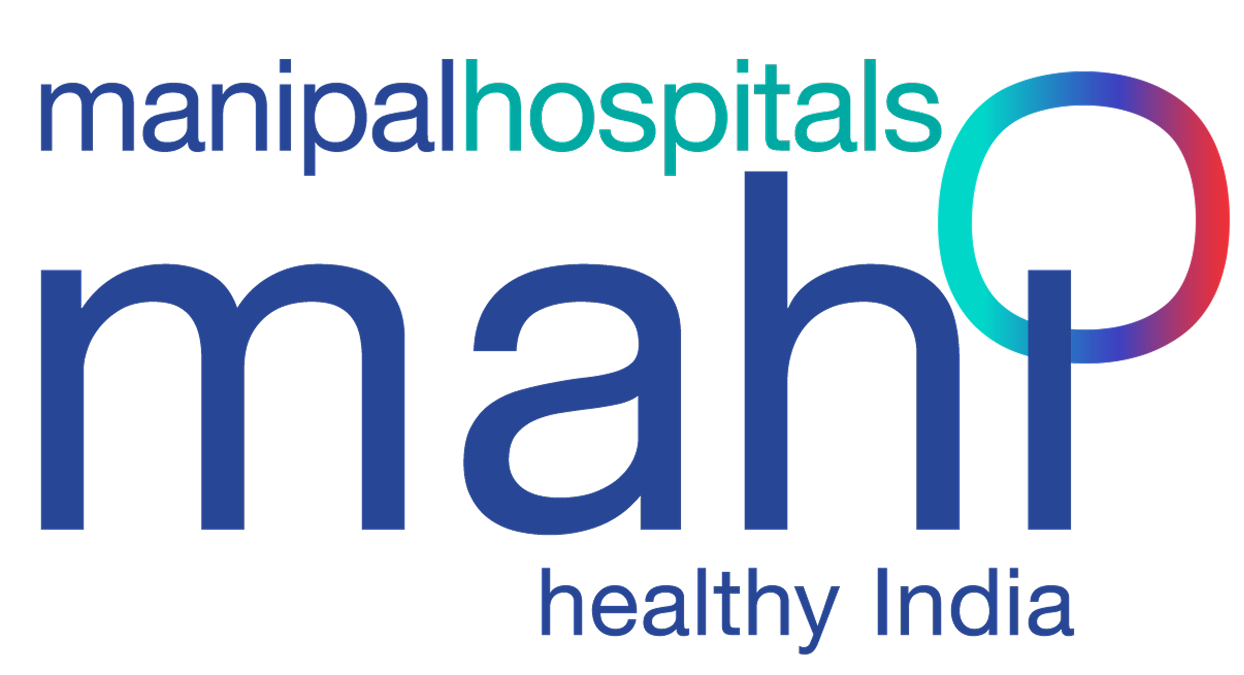
Deteriorating kidney health is a serious concern. In India, around 210,000 new cases of kidney failure are diagnosed every year. Globally, nearly 850 million people are affected by chronic kidney disease (CKD).1 Acute kidney injury (AKI), which is a significant risk factor for CKD, affects 13.3 million individuals worldwide and contributes to approximately 1.7 million deaths annually.2 AKI and CKD are both serious kidney conditions, but they differ significantly. This blog will explore the differences between chronic and acute kidney failure, their causes, symptoms, and treatment for effectively managing these conditions.
Synopsis
Difference Between Acute and Chronic Renal Failure
The normal functioning of the kidneys is vital for overall well-being, as they play a crucial role in filtering waste and excess fluids from the body. Various conditions, medicines, and diseases affect the functioning of the kidneys, leading to acute and chronic renal failure.
Acute renal failure is sudden and refers to short-term issues with kidney function, which can be severe. The term acute kidney injury (AKI) is more often used nowadays. This condition is often reversible with early treatment. AKI develops within a few days to weeks. Blood or urine tests are mainly used for diagnosis. There can be many possible causes of AKI that will differ depending on whether the damage has occurred above, in, or below the kidneys.
Whereas, when kidney function is lost gradually within months or years, it is known as chronic renal failure or chronic kidney disease. This damage is often irreversible and leads to end-stage renal disease or kidney failure if not treated. This condition requires multiple tests to evaluate the extent of damage and whether the kidney damage is acute or chronic.

Acute Renal Failure Causes
-
Heart attack or heart failure
-
Liver failure
-
Severe kidney infections
-
Medications toxic to the kidneys, such as NSAIDs
-
Sudden blood or fluid losses
-
Traumatic injuries
-
Cancers such as bladder, prostate, or cervical cancer
-
Blocked urinary catheter
-
Bladder or kidney stones
-
Major surgery
-
Enlarged prostate
-
Dehydration
There could be multiple conditions causing a rapid decline in kidney function, causing AKI.
Chronic Kidney Disease Causes
CKD is mostly caused by long-term conditions that keep affecting the kidneys over time. These include:
-
Diabetes
-
High blood pressure
-
Glomerulonephritis
-
Polycystic kidney disease
-
Family history of kidney disease or failure
-
Heart disease
-
Recurrent pyelonephritis
-
Long-term use of medications
Acute Renal Failure Symptoms
AKI symptoms can appear quickly and may be severe, but sometimes they are not immediately noticeable. It is important to seek medical guidance if you experience any of the symptoms listed below:
-
Decreased urine output
-
High blood pressure
-
Swelling in feet, hands, or ankles
-
Seizures
-
Weakness and fatigue
-
Chest pain or shortness of breath
-
Confusion
If left untreated, it can lead to coma, heart issues, respiratory failure, and even death.
Chronic Kidney Disease Symptoms
Although the symptoms of chronic kidney disease appear gradually, they are less noticeable in the early stages. Patients do not usually know they have CKD unless it gets severe. The symptoms of CKD include:
-
Persistent fatigue and weakness
-
High blood pressure (difficult to control)
-
Numbness
-
Unexplained weight loss
-
Metallic taste or ammonia-smelling breath
-
Swollen feet, ankles or feet
-
Frequent nighttime urination
-
Itchy and dry skin
-
Puffy eyes in the morning
-
Difficulty concentrating or memory issues
Get immediate medical help if you experience any of these symptoms or AKI symptoms, as CKD can lead to various complications such as reduced fertility, seizures, depression, weak bones, heart disease, pregnancy complications, and complete renal failure.
Treatment of AKI
The treatment for AKI focuses on addressing the underlying cause and preventing further complications. These include administering Intravenous Fluids, Diuretics, Haemodialysis and Intravenous Calcium. Although some cases of AKI can be reversed, the accumulation of toxins and some injuries may cause permanent damage, leading to chronic renal failure and long-term kidney damage.
Treatment of CKD
Although there is no proper cure, the treatment of CKD aims to slow the progression of kidney damage and preserve kidney function. The underlying cause is identified and managed. The treatment for managing CKD includes prescribing high blood pressure, cholesterol medications, diuretics, Vitamin D supplements, erythropoietin-stimulating agents, phosphate binders, and consuming low-protein diets. Dialysis or Kidney Transplantation is often recommended for end-stage renal disease.
Conclusion
Acute renal failure and chronic kidney disease are both serious conditions that affect the kidneys, but they differ significantly in terms of onset, causes, and symptoms. Recognising the symptoms of both conditions at early stages is essential for early intervention, which can help improve treatment outcomes and preserve kidney function. If you or a loved one is experiencing symptoms of acute and chronic renal failure issues or has any queries regarding kidney health, seek medical attention at Manipal Hospitals, Kolkata, to get a proper diagnosis and effective treatment.
FAQ's
Chronic kidney damage cannot be reversed, and you will need regular Dialysis throughout your life. The only alternative available is undergoing a Kidney Transplant.
As the kidneys stop working effectively in AKI, it destroys the balance of fluid and minerals in your body, also accumulating toxins or waste products. If not treated early, it can progress to CKD and can affect other organs such as the heart, lungs, and brain.
Stage 5 renal failure is also called end-stage kidney disease. This is the final stage of CKD in which the kidneys work at less than 15% of the normal levels. Dialysis or Kidney Transplantation is crucial for living.
To keep your kidneys healthy, follow these tips:
-
Make healthy food choices
-
Maintain a healthy weight
-
Stay physically active
-
Manage stress
-
Get a good sleep
-
Quit smoking and reduce alcohol consumption
-
Manage chronic conditions like diabetes, high blood pressure, and heart disease
-
Get regular screening and checkups
You can schedule an appointment at Manipal Hospitals, Kolkata, by contacting us or visiting our website.
Visit: https://www.manipalhospitals.com/kolkata/






















 6 Min Read
6 Min Read



.png)








